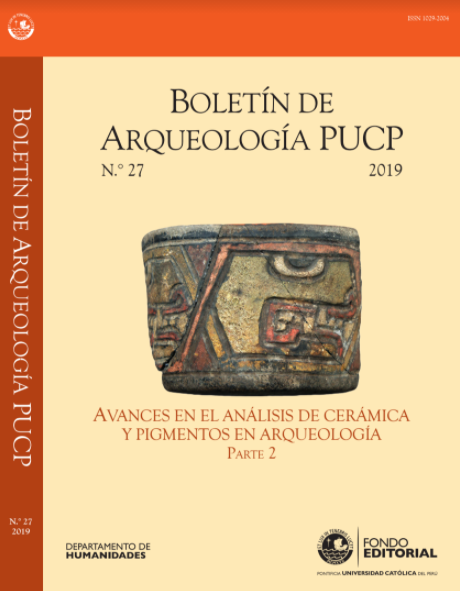Analisis composicional y examinación intercultural de los colorantes poscocción azul y azul-verdoso en cerámicas Tolita-Tumaco
DOI:
https://doi.org/10.18800/boletindearqueologiapucp.201902.007Palabras clave:
Tolita-Tumaco, pigmento, celadonita, glauconita, azulResumen
This study explores blue and blue-green post-fire colorants used by the Tolita-Tumaco culture of ancient coastal Ecuador and Colombia. Using X-ray diffraction (XRD) and scanning electron microscopy (SEM) coupled with energy dispersive spectroscopy (EDS), one sample each of blue and blue-green colorants taken from ceramic surfaces were tested to identify the mineral compositions present. The blue-green sample from a ceramic sherd found at La Tolita was identified as celadonite or glauconite. XRD and SEM tests on a blue sample from a ceramic figurine fragment found along the Rio Mataje was tentatively identified the sodic amphiboles glaucophane and riebeckite. XRD tests further suggest other minerals that may affect the color, including cordierite, antigorite, and celadonite or glauconite. Cross-cultural comparison provides insight on how coastal Ecuadorian groups used these colorants and exemplifies the innovative nature behind their creation. It appears that the development of Ecuadorian blue and blue-green derived from local colorant traditions, with some localized pigment sources.





